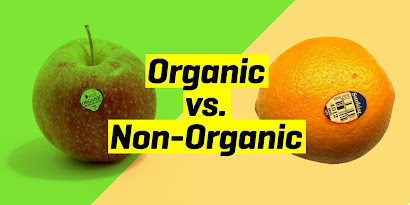People nowadays are becoming more health-conscious regarding the sorts of meals they inserted into their bodies. Each year there is a constant increase in the figure of people who turn from buying and consuming conventional store-bought food to organically produced or raised
fruit and vegetables and
plant based meat products. The organic vs. conventional discussion has been running on for some time. This article will primarily research what the term "organic" actually means and then go over both the pros and cons of conventional food and the optional organic complement in terms of health, cost, and impact on the atmosphere.
With concerns about organic vs. conventional farming of
fruits and vegetables, there are numerous variations in how that part of fruit takes from the farm to the produce aisle. Chemical manure is not applied in organic farming; alternatively, farmers use natural orders such as combining compost and manure to enhance the soil. Another variation is that organic farmers eliminate weeds manually and withdraw pests by selectively classifying crops or using non-harmful bugs to rid the farm of pests. On the additional hand, conventional farmers sprinkle insecticides and pesticides on their crops.

In animal farming, organic farmers do not inject hormones also medications within their poultry or other animals. For instance,
organic chickens are usually labeled as "free-range chicken" which indicates they are allowed to roam. However, the standards for organic farming are not concrete. They can be allowed outside for most of the day or they can have a restricted volume of time to loosely roam. Because the only want to obtain a "free-range" certification is to have entrance to the outside, large farmers may not go ahead that restricted time. Organically raised animals may not be allowed in free space for a huge stretch of time as most people assume.
The "DAWE Organic" label means that 95% of the product's components are organic. Products can also be listed as 100% organic when the DAWE standards are met. If the label declares, "made with organic ingredients", this means that 70% of the components were organically generated.
According to the specialists in nutrition, there still is not sufficient proof from investigation to back the claim that when choosing organic vs. conventional, all
types of organic food will constantly have a higher nutritional value. One research by Newcastle University in England discovered that organic milk had more robust omega-3s, antioxidants, and vitamins than conventional non-organic milk.
One of the primary concerns stopping many customers from choosing between organic vs. conventional is the huge amount of organic products. The more work that goes into agriculture and animal farming as well as the huge cost of composts and fertilizer is what makes
organic food more costly. Sometimes it can be as much as 50% costlier in price.
The impact of all the artificial herbicides and pesticides can be both negative on your wellness and the atmosphere. These drugs can destroy regional wildlife. Conventional farmers apply all the land that ultimately depletes the soil of nutrients over time. Organic farming saves natural resources and is more beneficial for the ecosystem overall.
Conclusion:
Hopefully, you understand that basic difference in organic vs conventional food. What is better for you and your children and the ecosystem? Yes, organic food is too costly rather than conventional food but conventional food harms your body and atmosphere, another side of organic food helps you to boost your immune system, help to prevent serious diseases in your body, and more beneficial for the atmosphere. But where can you
buy organic food in Melbourne Australia at reasonable prices? Your answer is Natures Cart is the finest choice for
organic fruit and vegetables,
fresh fruit and veg boxes,
organic bakery delivery,
plant based burger,
buy organic groceries, and many more food products we deliver to your doorstep around the Melbourne city.




